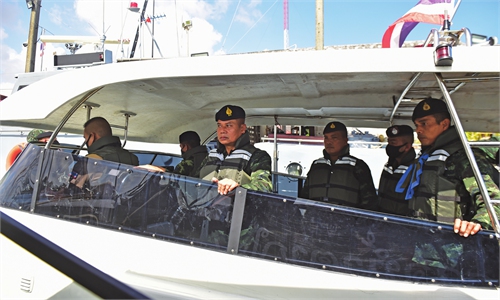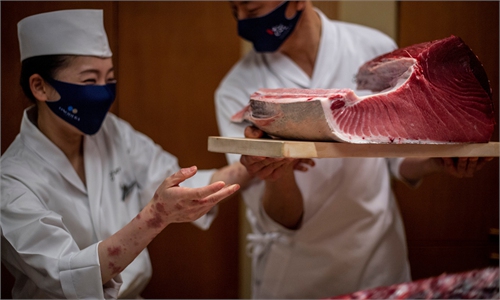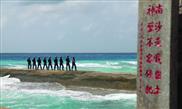Ousmane Djebare Djenepo, wearing sunglasses and an easy smile, stands upright to show off the mighty Niger River which is flowing around his traditional wooden canoe, or pirogue.
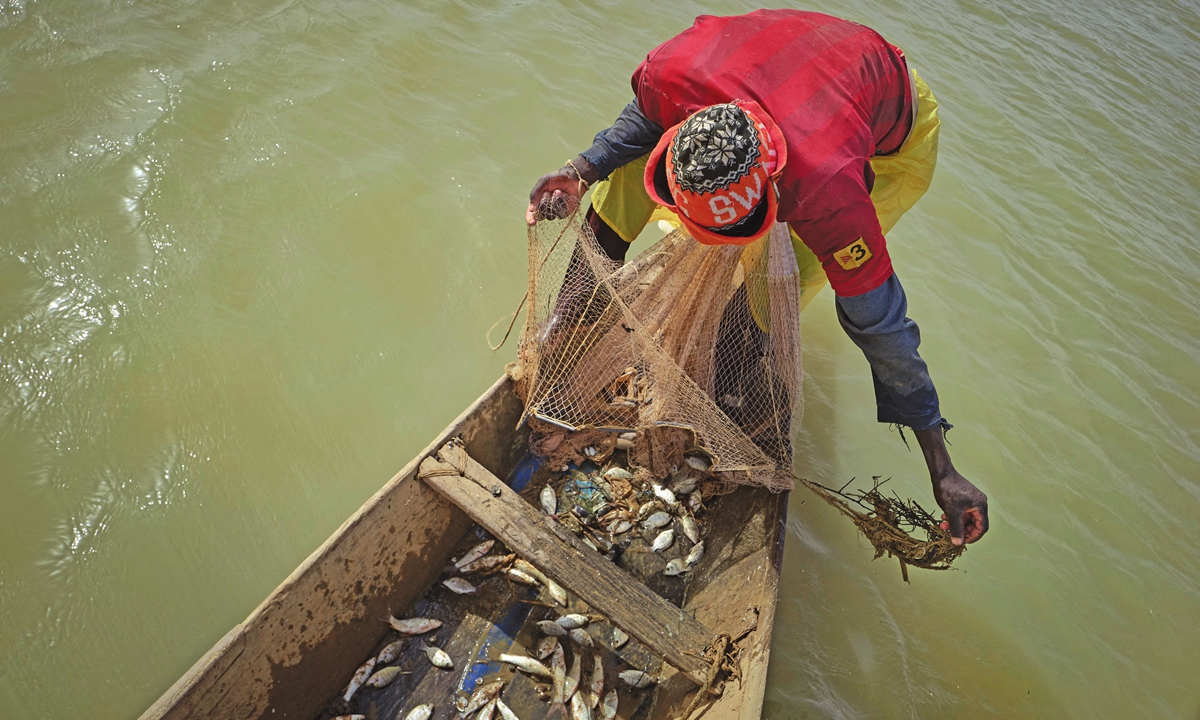
But Djenepo's smile hides unease.
"Before, the river was deep and the fishing seasons long," says Djenepo, head of the federation of fishermen of the Niger River's inner delta.
"Now there are far fewer fish, and the river has too many problems."
Ecological issues are threatening livelihoods in the area in central Mali, even as inhabitants have to contend with jihadists and armed groups.
Islamist militants launched a brutal insurgency in Mali in 2012 which has killed thousands and displaced hundreds of thousands more.
But in the inner Niger delta, overfishing has depleted stocks, and the Sahara desert is also encroaching on the green floodplains.
Boukary Guindo, the government's fisheries director for the region, said the situation for fishermen has gone "from bad to worse."
A vast area roughly the size of Switzerland, the inner Niger delta is a complex ecosystem comprising lakes and floodplains, which supports hundreds and thousands of fishermen, farmers and herders.
During flooding in the rainy season, only pirogues can travel across the delta.
But when the waters recede, fish-filled pools are left behind, alongside huge fields of hippo grass that attract cattle from across the semi-arid Sahel.
Hamidou Toure, director of the delta's fisheries development office, said that the Sahara has been "engulfing" the Niger River for years.
New sandbanks cut off formerly productive areas of the delta, he said, with fish no longer left behind.
'Fish from the sky'
Several dams built since the 1970s have also changed the course of the third-longest river on the African continent. And rains are less frequent, which has slowed its flow.
The result has been a blurring of boundaries between seasons, weakening the traditional shared management of the delta's resources, according to Ibrahima Sankare, from the aid group Delta Survie.
"When the grass is there, it's for the pastoralists; when the water is there, for the Bozos; when the land is there, for the farmers," he said, explaining the customary system.
Bozos are an ethnic group in Mali that traditionally practices fishing.
Sankara added that everyone has "abused" the system, which was first established in the 19th century under the ethnic Fulani-led Macina empire.
For fishermen, however, catching whatever comes along is a matter of survival.
Boukary Guindo, the fisheries director, said fishermen often catch spawners, which can decimate stocks.
"Our cousins the Bozos think that fish fall from the sky," he added, with a rueful smile.
Guindo's job involves encouraging fishermen to use nets that spare smaller fish, allowing stocks to respawn.
However, central Mali's rampant insecurity prevents fieldwork.
Since Al-Qaeda-affiliated jihadists infiltrated the region in 2015, it has become one of the Sahel conflict's bloodiest battlegrounds, where the government exerts little control.
No longer nourishes us
Some Bozo fishermen told AFP that they can be shot at while travelling the waterways of the delta, and jihadists sometimes block access to fishing grounds or demand taxes.
Serious attacks can also occur and have prompted many locals to leave the region.
In a hut on the outskirts of the regional capital Mopti, Rokia recounted how militants in 2018 kidnapped the men in her family.
Gunmen had demanded that her family's five pirogues - with 23 people aboard including her husband, two sons and two brothers - pull up by the riverbank, she said.
Rokia - whose first name AFP has withheld for her safety - pleaded with the militants, to no avail.
"We never saw them again," she said, through sobs.
Now based in Mopti, the remaining members of her family no longer fish.
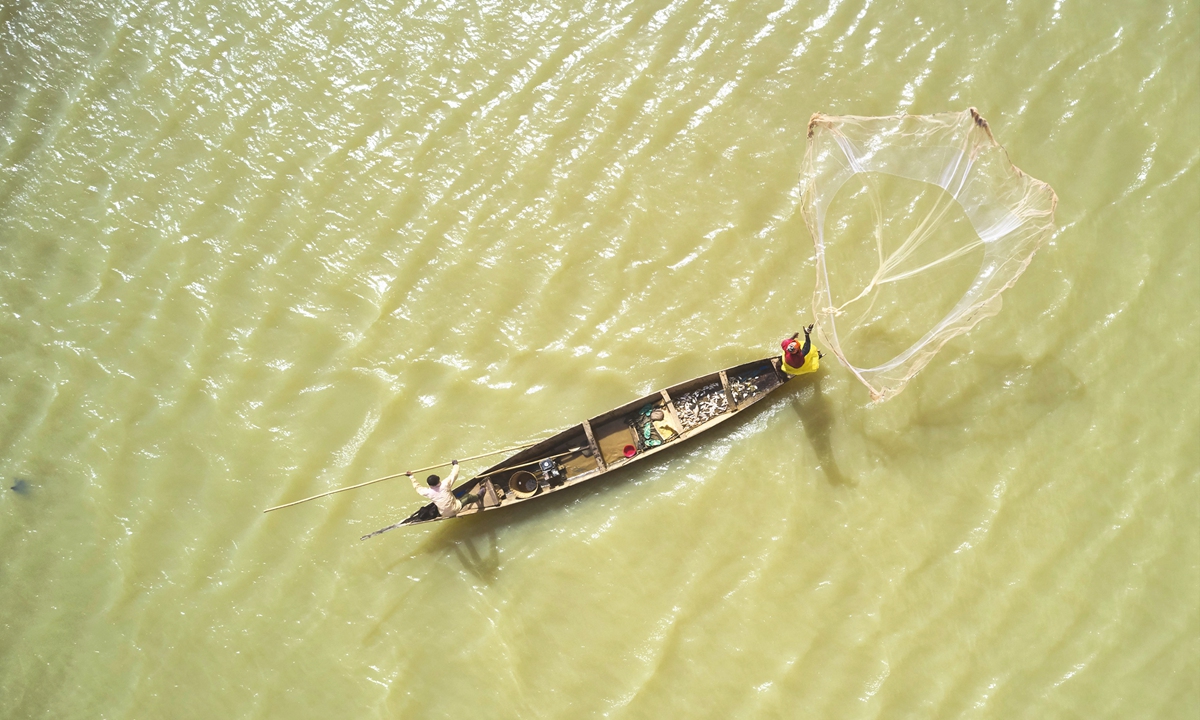
In response to falling stocks, authorities are promoting fish farms, which now account for about 10 percent of the delta's production.
Modibo Traore, who spent 30 years fishing the river, has taken this route. "You can catch only big fish if you want, it's easier," he says.
For others, the environmental problems are extreme enough that they want to block fishing altogether.
Guindo, the fisheries director, said he wants all fishing to stop temporarily, "to give the river a biological rest."

A fisherman on his pirogue on the Niger River in Mopti, Mali, on March 17, 2021 Photos: AFP
The 76-year-old Malian is one of tens of thousands of fishermen who make a living from the river and the verdant wetlands which surround it.But Djenepo's smile hides unease.
"Before, the river was deep and the fishing seasons long," says Djenepo, head of the federation of fishermen of the Niger River's inner delta.
"Now there are far fewer fish, and the river has too many problems."
Ecological issues are threatening livelihoods in the area in central Mali, even as inhabitants have to contend with jihadists and armed groups.
Islamist militants launched a brutal insurgency in Mali in 2012 which has killed thousands and displaced hundreds of thousands more.
But in the inner Niger delta, overfishing has depleted stocks, and the Sahara desert is also encroaching on the green floodplains.
Boukary Guindo, the government's fisheries director for the region, said the situation for fishermen has gone "from bad to worse."
A vast area roughly the size of Switzerland, the inner Niger delta is a complex ecosystem comprising lakes and floodplains, which supports hundreds and thousands of fishermen, farmers and herders.
During flooding in the rainy season, only pirogues can travel across the delta.
But when the waters recede, fish-filled pools are left behind, alongside huge fields of hippo grass that attract cattle from across the semi-arid Sahel.
Hamidou Toure, director of the delta's fisheries development office, said that the Sahara has been "engulfing" the Niger River for years.
New sandbanks cut off formerly productive areas of the delta, he said, with fish no longer left behind.
'Fish from the sky'
Several dams built since the 1970s have also changed the course of the third-longest river on the African continent. And rains are less frequent, which has slowed its flow.
The result has been a blurring of boundaries between seasons, weakening the traditional shared management of the delta's resources, according to Ibrahima Sankare, from the aid group Delta Survie.
"When the grass is there, it's for the pastoralists; when the water is there, for the Bozos; when the land is there, for the farmers," he said, explaining the customary system.
Bozos are an ethnic group in Mali that traditionally practices fishing.
Sankara added that everyone has "abused" the system, which was first established in the 19th century under the ethnic Fulani-led Macina empire.
For fishermen, however, catching whatever comes along is a matter of survival.
Boukary Guindo, the fisheries director, said fishermen often catch spawners, which can decimate stocks.
"Our cousins the Bozos think that fish fall from the sky," he added, with a rueful smile.
Guindo's job involves encouraging fishermen to use nets that spare smaller fish, allowing stocks to respawn.
However, central Mali's rampant insecurity prevents fieldwork.
Since Al-Qaeda-affiliated jihadists infiltrated the region in 2015, it has become one of the Sahel conflict's bloodiest battlegrounds, where the government exerts little control.
No longer nourishes us
Some Bozo fishermen told AFP that they can be shot at while travelling the waterways of the delta, and jihadists sometimes block access to fishing grounds or demand taxes.
Serious attacks can also occur and have prompted many locals to leave the region.
In a hut on the outskirts of the regional capital Mopti, Rokia recounted how militants in 2018 kidnapped the men in her family.
Gunmen had demanded that her family's five pirogues - with 23 people aboard including her husband, two sons and two brothers - pull up by the riverbank, she said.
Rokia - whose first name AFP has withheld for her safety - pleaded with the militants, to no avail.
"We never saw them again," she said, through sobs.
Now based in Mopti, the remaining members of her family no longer fish.

A fisherman on his pirogue on the Niger River in Mopti, Mali, on March 17, 2021
'Biological rest'In response to falling stocks, authorities are promoting fish farms, which now account for about 10 percent of the delta's production.
Modibo Traore, who spent 30 years fishing the river, has taken this route. "You can catch only big fish if you want, it's easier," he says.
For others, the environmental problems are extreme enough that they want to block fishing altogether.
Guindo, the fisheries director, said he wants all fishing to stop temporarily, "to give the river a biological rest."
